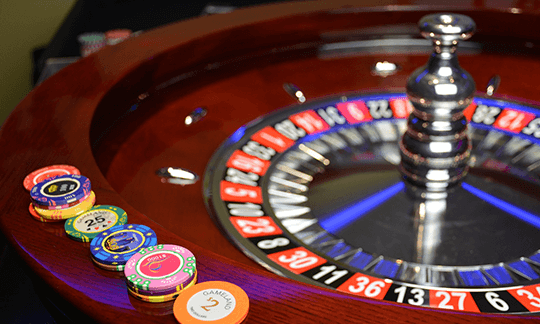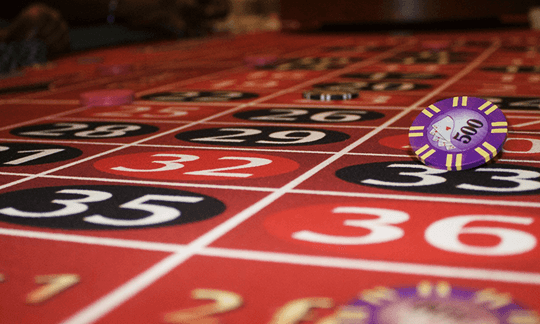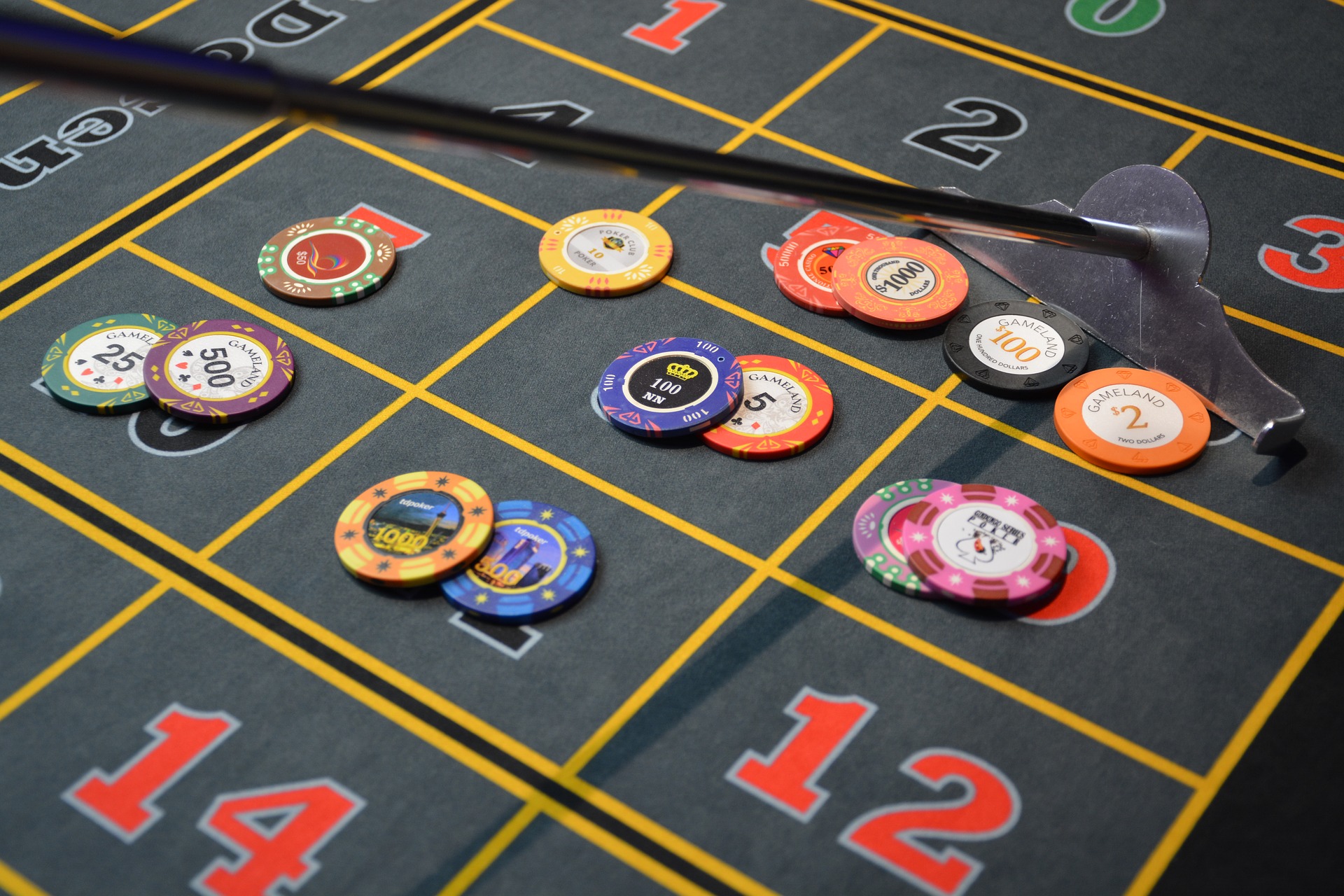Roulette Terminology
Many a gambler enjoys a good round of the timeless Roulette, but not everyone is as well informed about the subtleties between the types of wheels and the lingo that is thrown around at those tables. Ever wondered what the difference is between French Roulette, European Roulette and American Roulette? Or perhaps what the term “La Partage” may mean? Fret not, for we provide this small informational write-up for you to get the hang of some of the most important Roulette terms that might come in handy the next time you find yourself at a Roulette table or perhaps playing an online Roulette game.
The many different facets of Roulette
Roulette comes in many different shapes and forms, so let’s take a look at the differences between the different variations of Roulette that are present and played, both physically and online, by thousands every day. Let us begin with the French Roulette version which consists of 37 pockets, a number sequence from 1 to 36 plus one single-zero pocket. By contrast the American Roulette wheel is numbered 1 to 36 with the addition of two additional pockets, namely a single-zero pocket and a double zero pocket.
Why is this important, you may wonder. Well one of the main reasons is the distribution in the American Roulette due to there being a greater chance of both high and low numbers, as well as odd and even numbers, occurring on adjacent pockets. The sequence (read clockwise) can be seen here:
0, 28, 9, 26, 30, 11, 7, 20, 32, 17, 5, 22, 34, 15, 3, 24, 36, 13, 1, 00, 27, 10, 25, 29, 12, 8, 19, 31, 18, 6, 21, 33, 16, 4, 23, 35, 14, 2
In contrast the more popular and visually more balanced version of French Roulette has the following sequence:
0, 32, 15, 19, 4, 21, 2, 25, 17, 34, 6, 27, 13, 36, 11, 30, 8, 23, 10, 5, 24, 16, 33, 1, 20, 14, 31, 9, 22, 18, 29, 7, 28, 12, 35, 3, 26

This sequence has been carefully devised. The colours of the pockets always alternate between red and black which means there can never be adjacent “runs” of one colour and the numbers are spread out evenly. That means there are never more than two odd or even numbers next to each other. Speaking of Roulette terms, another reason for the popularity of French Roulette tables is the rule of “la partage” and given its French origin it’s also more commonly found on French tables, or rather casinos using the original French layout. Should the ball land on 0, all even-money bets are instantaneously split in twain and half of your original bet is returned. This brings the house edge of all even money bets down, which can make a huge difference when playing certain types of bets and especially for long-term strategies which will have players spend quite some time at the Roulette table.
The “en prison” rule, on the other hand, gives you another chance to win back the money placed on an outside bet when the ball lands on zero. The bet stays in the same spot and is marked as “en prison". If the next spin wins you are returned what you lost, but if the spin is a loss the house will claim what was "imprisoned". Lastly, the European Roulette version is practically identical to the French variation except for two key differences. The European Roulette variant does not feature the “la partage” and “en prison” rules. Thus, as stated previously, the French Roulette version boasts the best chances for the player and it is for this very reason that it is the most popular version played among casino fans, especially when it comes to even-money bets.
Inside and Outside Bets - a small Roulette Glossary
Now to the real meat and bones of this miniature Roulette glossary, the terms you really want to know when playing a few rounds of Roulette! Betting options have come a long way since the original inception of the Roulette game. In modern casinos, betting options and associated jargon are usually split into different groups, referred to as inside bets, outside bets and the so-called announced bets.

Some of the inside bets:
A number bet, the “straight” or also known as “single” refers to the player placing their chips directly on any numbers they desire. “Splits” are bets placed on two numbers whose fields are adjacent to each other, typically indicated by placing your chips directly on top of the edge between those two numbers. Betting on a row of 3 numbers is referred to as a “street”. Then there are the more risky “basket” and “trio” options. Trio is a bet on three numbers with one of them being either a zero or a double zero (in case a game of American Roulette is played), whilst the basket, being quite similar to the trio, has you betting on the zero and the first three numbers. This is usually indicated by placing your chips at the corner of the zero field.
Now for some Roulette terms for the outside bets:
Outside bets are ideal for a few quick rounds of Roulette as these bets usually sport higher win rates at lower returns! “Red or Black” bets are, easy enough, bets that are made on a specific colour. Simple enough but keep in mind that the zero - or double zero - being green does not count for either one of these colours! “Odd or Even” on the contrary are bets that are being placed on the winning number, during the next spin, being either an odd or even one. Betting “low or high” refers to the player betting on the number the ball lands on during the next spin being either above 19 or below. And of course the “columns”, which as an inside bet lets the player place his chips on a row or street of numbers. As an outside bet however you are allowed to do the same for one of the three columns of numbers.

Some Roulette terms for the so called “announced” or “called” bets;
“Voisins du Zero” for example refers to the 17 numbers that lie between and including 22 - 25 on the wheel, thus translated as “neighbours of zero”. A “zero game” which is the bet of zero and the 3 numbers to both sides of the zero. Also worth mentioning is the “orphans” number bet, announcing that you bet on the numbers 1, 6, 9, 14, 17, 20, 31 and 34. This means you place chips between these adjacent numbers whenever possible, typically also a bet with better chances on a French Roulette table. Many Roulette tables or online Roulette games will have certain rules by default depending on their layout. French Roulette tables tend to have the "la partage" rule in place by default but in case you are uncertain always make sure to check the rules and payouts before playing any roulette game to avoid frustration. We hope this has been informational and you are less deterred from French Roulette terms the next time you choose to play a game of the timeless classic that is Roulette.
Frequently Asked Questions
What does "manque" mean in Roulette?
"manque" means "to fail", as in failing to make it past 18. Failing to make it past the first half of the pool of numbers. Therefore, playing a "manque" means betting on number 1-18.
Is there a roulette strategy?
Absolutely! Many roulette strategies like Martingale, Fibonacci or the James Bond system are explained in your blog!
Is Roulette pure luck?
Roulette is, at its core, a game of pure chance. You cannot influence the spin of the Roulette wheel, nor can you influence the ball and the pocket it will land in.
Can you make a living playing Roulette?
While sometimes players get extremely lucky, we cannot recommend playing Roulette, or any casino games, with the intent of making a living off of them. Refer to our guide for more information regarding safer gambling!









